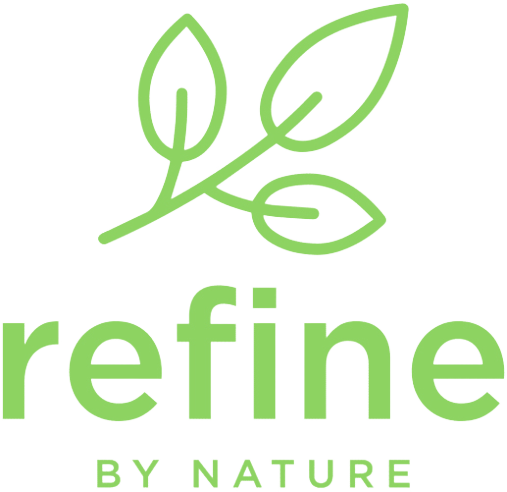Lectins are a type of protein found in many plant-based foods, including grains, legumes, nuts, and fruits. They are believed to play a role in the body’s defense against pathogens and have been linked to a variety of health benefits. However, lectins can also cause digestive issues and other negative reactions in some people. For this reason, many people are now following a lectin-free diet, which eliminates all foods containing lectins.
What are Lectins?
Lectins are a type of carbohydrate-binding protein found in many plant-based foods. They are believed to play a role in the body’s defense against pathogens, and have been linked to a variety of health benefits. Lectins are found in a wide variety of plant-based foods, including grains, legumes, nuts, fruits, and vegetables.
The most common type of lectin is phytic acid, which is found in grains, legumes, and nuts. Phytic acid is believed to have antioxidant and anti-inflammatory properties, and may help protect against certain diseases. Other types of lectins include agglutinins, which are found in beans and other legumes, and agglutinogens, which are found in some fruits and vegetables.
Why I Avoid Lectins
One of the main reasons to avoid lectin-containing foods is that they can cause digestive issues. Lectins are difficult for the body to digest, and can cause bloating, gas, and other digestive issues. Additionally, some people may be more sensitive to lectins than others, and may experience more severe digestive issues.
Another reason to avoid lectin-containing foods is that they can interfere with the absorption of certain nutrients. Lectins can bind to certain vitamins and minerals, such as iron and zinc, and prevent them from being absorbed by the body. This can lead to nutrient deficiencies and other health issues.
Finally, lectin-containing foods can also cause inflammation in the body. Inflammation is linked to a variety of health issues, including heart disease, diabetes, and obesity. For this reason, it is important to limit your intake of lectin-containing foods in order to reduce inflammation and improve your overall health.
How To Follow A Lectin-Free Diet
A lectin-free diet is a type of diet that eliminates all foods containing lectins. This includes grains, legumes, nuts, fruits, and vegetables. The goal of a lectin-free diet is to reduce the risk of digestive issues and other negative reactions associated with lectins.
Although a lectin-free diet may reduce the risk of digestive issues and other negative reactions, it is important to note that eliminating all lectin-containing foods may also reduce the intake of important nutrients. For this reason, it is important to consult a healthcare professional before starting a lectin-free diet.
Foods to Avoid on a Lectin-Free Diet
The following foods should be avoided on a lectin-free diet:
- Grains: wheat, barley, rye, oats, corn, rice
- Legumes: beans, lentils, peas, peanuts, soybeans
- Nuts: almonds, cashews, walnuts, pecans, hazelnuts
- Fruits: Apples, bananas, oranges, grapes, strawberries
- Vegetables: potatoes, tomatoes, peppers, eggplant, squash
Foods to Eat on a Lectin-Free Diet
The following foods are generally considered safe to eat on a lectin-free diet:
- Fruits: blueberries, cranberries, raspberries, watermelon, honeydew
- Vegetables: broccoli, cauliflower, kale, spinach,
- Meats: beef, chicken, pork, turkey, fish
- Dairy: milk, yogurt, cheese
- Eggs
- Oils: olive oil, coconut oil, avocado oil
Best Sources Following A Lectin Free Diet
1. Dr. Steven Gundry: Dr. Gundry is a renowned cardiologist and author of the best-selling book The Plant Paradox. His website provides comprehensive information on the lectin-free diet, including recipes, meal plans, and shopping lists.
2. The Lectin Avoidance Diet: This website provides an in-depth look at the lectin-free diet, including an overview of the diet, a list of foods to avoid, and recipes.
3. The Plant Paradox: This book by Dr. Steven Gundry provides an in-depth look at the lectin-free diet, including an overview of the diet, a list of foods to avoid, and recipes.
4. Dr. Amy Myers: Dr. Myers is a renowned functional medicine doctor and author of the book The Autoimmune Solution. Her website provides comprehensive information on the lectin-free diet, including recipes, meal plans, and shopping lists. 5. The Autoimmune Solution: This book by Dr. Amy Myers provides an in-depth look at the lectin-free diet, including an overview of the diet, a list of foods to avoid, and recipes
Conclusion
Lectins are a type of protein found in many plant-based foods, including grains, legumes, nuts, and fruits. They are believed to play a role in the body’s defense against pathogens, and have been linked to a variety of health benefits. However, lectins can also cause digestive issues and other negative reactions in some people. For this reason, many people are now following a lectin-free diet, which eliminates all foods containing lectins. It is important to consult a healthcare professional before starting a lectin-free diet, as eliminating all lectin-containing foods may reduce the intake of important nutrients.

